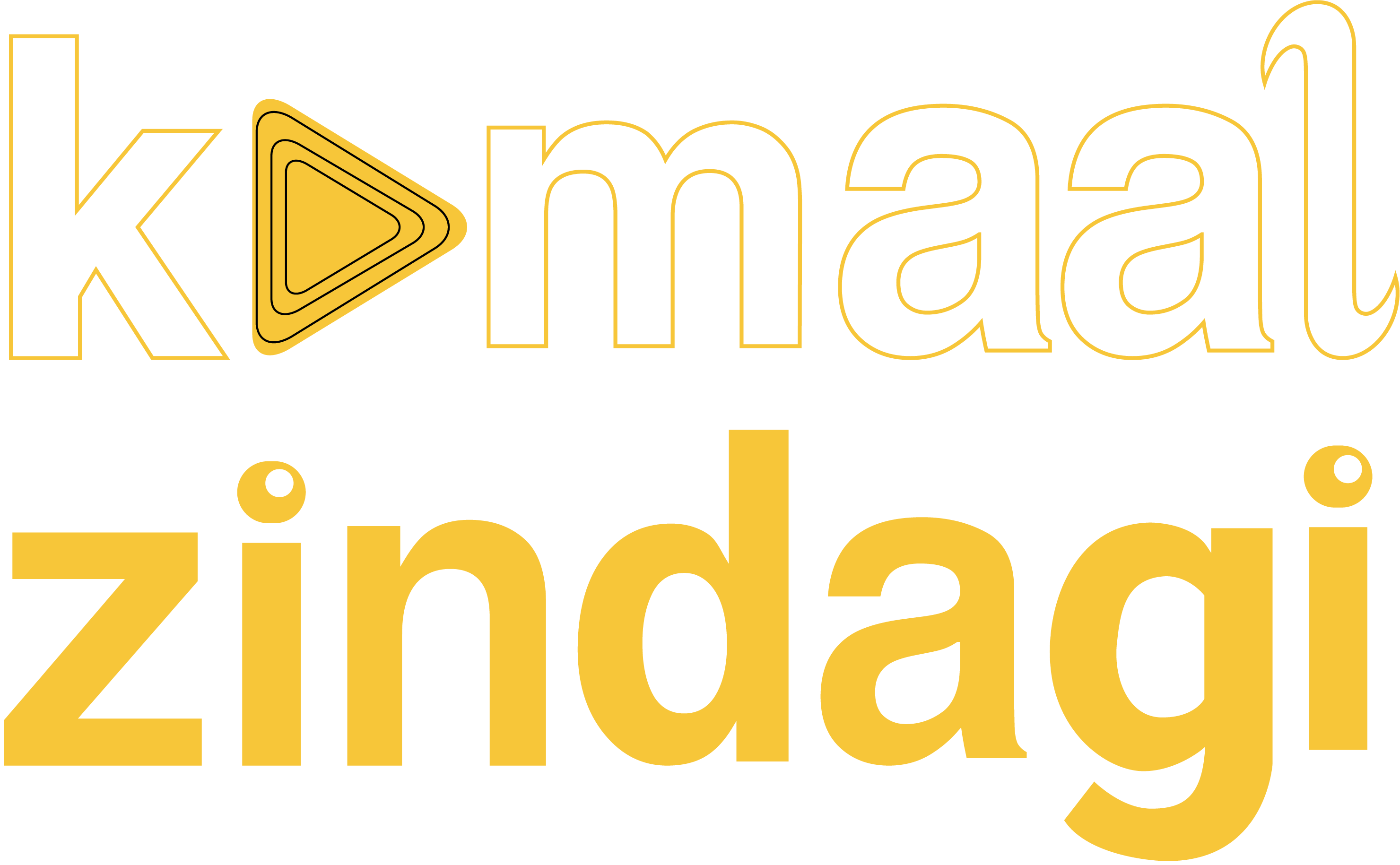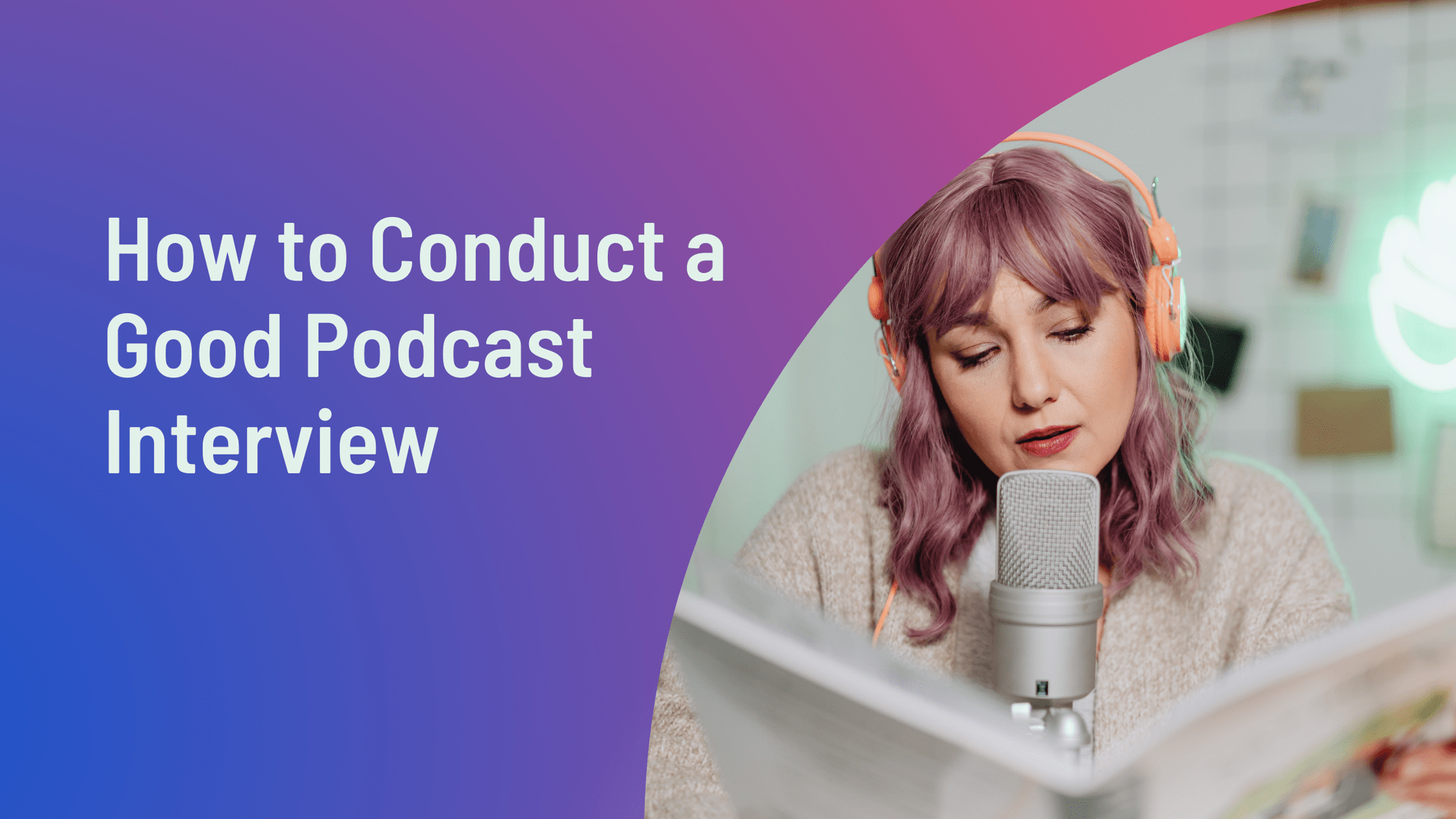How to Conduct a Good Podcast Interview
Podcasting has emerged as one of the most popular forms of media, offering a dynamic way to engage with audiences on a variety of topics. Among the many podcast formats, interviews stand out as a particularly effective way to provide value and insight. Interviews let hosts bring i experts and share new views. They create conversations that captivate listeners. Yet, the quality of these interviews is crucial in maintaining audience interest and building a loyal following. A good podcast interview goes beyond asking questions. It’s about connecting with the guest, steering the chat, and ensuring the audience gains something. A well-done interview boosts your podcast’s quality, draws new listeners, and deepens the bond with current ones. This guide will cover the steps for a successful podcast interview, from prep to execution. It will help your podcast shine in a crowded market.
Why a Good Podcast Interview Matters
A well-conducted interview can make all the difference in the success of a podcast. The way a
host engages with their guest not only shapes the content but also influences how the audience
perceives the show. When done right, podcast interviews can build trust among the host, guest,
and listeners. A good interview makes the guest feel valued and heard. This sparks a real
conversation that connects with the audience. As a result, it often leads to more loyal listeners.
People tend to return to podcasts with engaging and insightful talks.
Also to enhance engagement, strong interviews have the potential to attract new listeners.
Guests with a strong following bring their audience. This can help expand your reach. If your
guest shares valuable insights or stories, it can attract new listeners to your show. Interviews
allow for in-depth exploration of specialized topics. This gives your podcast a competitive edge
with unique content. Choose the right guests and ask good questions. This will make your
podcast entertaining and educational, boosting its appeal.
Preparing for the Interview
Research Your Guest:
A successful podcast interview starts with preparation, particularly researching your guest.
Knowing their background, skills, and interests allows for better questions and deeper
conversations. So, review their work, social media, and interviews to grasp their personality and
communication style.. This will help you tailor your questions to not only reflect their knowledge
but also engage them in a way that feels natural. The more you know about your guest, the
more confident and relaxed you’ll be during the interview, which can lead to a smoother
conversation.
Crafting Effective Questions:
Effective questions are the key to drawing out valuable insights from your guest. We must move
beyond surface-level questions. We should ask open-ended ones that encourage detailed
answers responses. Avoid yes/no questions, as they can lead to short, unengaging answers.
Instead, focus on questions that explore your guest’s experiences, opinions, and challenges.
For example, ask about their journey, what motivates them, or how they overcame obstacles.
These questions spark deeper talks and offer new insights. So, plan your questions but be
ready to explore interesting side topics.
Podcast Structure:
A clear structure helps guide the host and guest through the interview. Some podcasts thrive on spontaneous conversation. But, a basic outline for the interview can help. It can ensure you
cover all key points while keeping a smooth flow. Begin with a brief introduction, then transition
into the main topics of discussion. Keep the conversation dynamic by alternating between lighter
and deeper questions. Conclude the interview by summarizing the key takeaways and thanking
the guest for their time. Having a structured approach will help you stay on track and prevent the
conversation from veering off-topic.
Creating a Comfortable Environment for the Guest
A comfortable setting is crucial for a podcast interview. It helps guests relax, leading to more
genuine insights and a better conversation. First, explain the interview format and what to
expect. Share the topics and, if you can, the questions in advance. This preparation eases their
nerves, fostering a more natural dialogue.
For in-person interviews, ensure that the physical space is welcoming and free of distractions. If
you’re doing a virtual interview, test the tech first. This will avoid problems during the
conversation. Ensure good audio and video quality. Consider using a platform like Zoom or
Skype, as most guests are familiar with them. Also, consider adjusting the environment to suit
the guest’s preferences. For example, if they prefer a casual setting, let them keep the talk
relaxed. A comfortable atmosphere helps the guest be more at ease and engaged in the
interview.
Lastly, Small Simple gestures, such as offering coffee or saying thanks, build rapport and make
guests feel valued. Comfortable guests are more likely to share stories and provide answers
that resonate with your audience.
Mastering the Art of Active Listening
Active listening is vital for podcast hosts. It means fully engaging with your guest and
responding to keep the conversation natural. This skill goes beyond hearing words. You need to
interpret messages and ask follow-up questions to enrich the talk. Active listening shows guests
their thoughts matter, building a stronger connection.
To practice active listening, focus fully on your guest. Avoid planning your next question or
interrupting. Let them finish, then respond with a related comment or question. This shows
you’re engaged. For instance, if they share a story or challenge, ask them to explain more or
how it influenced their work. This demonstrates genuine interest and encourages deeper
sharing.
Also, use non-verbal cues in person or verbal affirmations online to show you’re listening. For
example, you can nod or say, “interesting” or “tell me more.” These gestures encourage the
guest to continue and keep the conversation flowing.
Managing the Flow of the Conversation
Keeping a natural flow in a podcast interview is key. It makes the talk engaging and prevents it
from feeling forced. Being flexible with your plan helps. This allows for spontaneous, organic
moments. Stick to main topics, but be open to side conversations. Often, these lead to the most
interesting and memorable parts.
Balancing talk between you and the guest is crucial for smooth flow. As the host, guide the
discussion without overpowering the guest. Allow them to share their thoughts. Aim to listen
more than you speak. If you’ve been talking a lot, pause. Then, invite the guest to respond or
share their views.
Switching topics should feel easy and seamless. If the talk strays, gently steer it back. You can
reference the main topic or ask a related question. Handling awkward silences is key too. Don’t
rush to fill the gap. Allow your guest time to think or reflect. Pauses can enrich the conversation
and lead to deeper answers.
Handling Difficult Situations
Most podcast interviews run smoothly. However, you might face challenges. These include
guests who are nervous, uncooperative, or unwilling to share information. As the host, you must
handle these issues with professionalism. If a guest is nervous, reassure them. Remind them
the talk is casual. Offer positive feedback to help them relax and open up.
If a guest is uncooperative or avoids questions, stay patient and respectful. If they’re
uncomfortable, gently steer the conversation to a more comfortable topic. You can also suggest
skipping sensitive questions. However, don’t push too hard. It’s crucial to respect boundaries to
maintain a good relationship.
Controversial topics can come up, so handle them carefully. For sensitive subjects, let the guest
speak without judgment. If things get tense, shift to neutral topics. Always stay professional to
keep the interview enjoyable and productive.
Wrapping Up the Interview
Ending a podcast interview well is crucial. It leaves a lasting impression on your guest and
audience. First, thank your guest for their time and insights. Then, highlight key discussion
points. Finally, show gratitude for their contribution.
This ensures a positive, professional ending Summarize the main points and highlight memorable moments. This boosts the interview’s value and aids memory. If suitable, invite the audience to follow the guest on social media or check their work. Also, tease future episodes and explain how to stay engaged. Finally, tell the guest where to find their episode and thank them again.
Conclusion
A good podcast interview is vital for hosts. It makes content engaging and valuable. First,
prepare well and create a welcoming space for your guests. Then, listen actively to connect with
the audience. Also, manage the conversation and handle tough situations professionally. This
improves the experience for everyone. With these tips, your podcast will grow and attract more
listeners. Keep practicing and learn from successful podcasts

